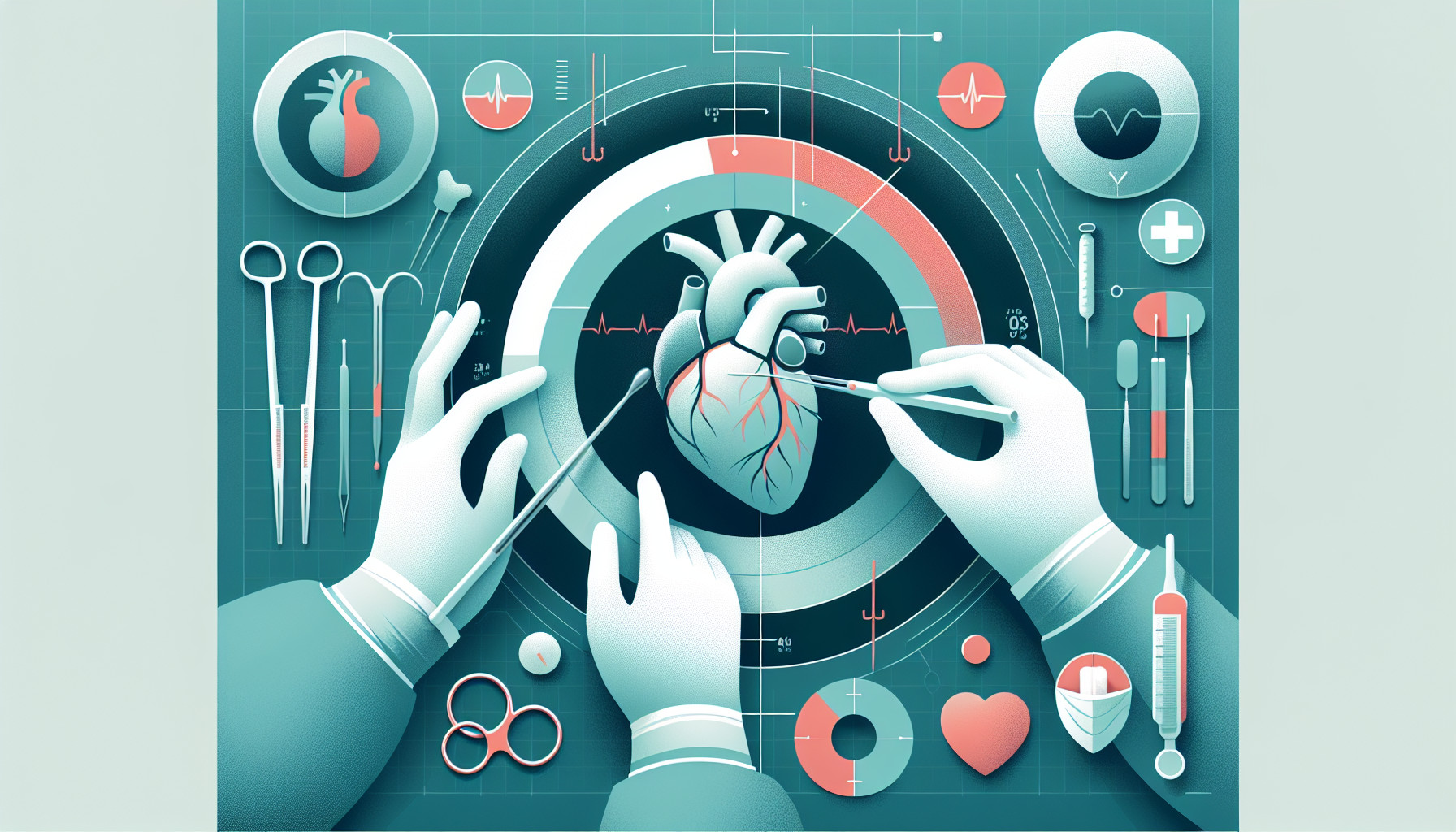Our Summary
The current methods for treating a heart condition called persistent atrial fibrillation (AF) are not very effective, with only about half of the patients seeing improvement. The main treatment involves isolating a part of the heart called the pulmonary vein, but additional strategies have not consistently shown good results in trials. This might be due to a lack of understanding about how AF works, the fact that patients respond differently to treatments, difficulties in creating lasting changes in the heart, and lack of consistent goals for the procedure. This paper proposes a new treatment protocol that uses advanced techniques to map the heart and specific goals to stop AF. It also discusses new technologies like pulse field ablation, which might improve safety and long-term results. This information could be helpful for future research and improving treatment strategies for persistent AF.
FAQs
- What is the success rate of current ablation strategies for persistent atrial fibrillation?
- What are the key challenges in achieving success with ablation strategies for persistent atrial fibrillation?
- What is the potential role of pulsed field ablation in enhancing safety and long-term outcomes for persistent atrial fibrillation?
Doctor’s Tip
One helpful tip a doctor might tell a patient about cardiac ablation is to follow all pre-procedure instructions carefully, such as fasting before the procedure and stopping certain medications as directed. It’s important to communicate with your doctor about any concerns or questions you may have before undergoing the procedure. Additionally, make sure to follow all post-procedure care instructions to ensure a successful recovery.
Suitable For
Patients with persistent atrial fibrillation (AF) are typically recommended for cardiac ablation. Persistent AF refers to AF episodes that last longer than 7 days or require intervention to terminate. These patients may have failed antiarrhythmic medications or have significant symptoms that impair their quality of life. Additionally, patients with recurrent AF episodes despite medical therapy or those at high risk for stroke may also be candidates for cardiac ablation. It is important for patients to undergo a thorough evaluation by a cardiac electrophysiologist to determine if they are suitable candidates for the procedure.
Timeline
Before cardiac ablation:
- Patient is diagnosed with persistent atrial fibrillation (AF) and symptoms such as palpitations, shortness of breath, and fatigue.
- Patient undergoes various tests and evaluations to assess the severity of their condition and determine if they are a candidate for ablation.
- Patient may be prescribed medications to manage their symptoms and reduce the risk of complications.
- Patient meets with a cardiologist and electrophysiologist to discuss the procedure, risks, and potential benefits.
After cardiac ablation:
- Patient undergoes the ablation procedure, which typically involves targeting and isolating the pulmonary veins to prevent abnormal electrical signals that cause AF.
- Patient may experience some discomfort or soreness at the catheter insertion site, but this is usually minor and temporary.
- Patient is monitored closely for any complications or recurrence of AF in the days following the procedure.
- Patient may need to take medications for a period of time after the procedure to help maintain normal heart rhythm.
- Patient follows up with their healthcare team regularly to monitor their progress and make any necessary adjustments to their treatment plan.
What to Ask Your Doctor
- What is the success rate of cardiac ablation for my specific type of arrhythmia?
- What are the potential risks and complications associated with cardiac ablation?
- How long will the procedure take and what is the recovery time?
- Will I need to take any medication before or after the procedure?
- How many ablations have you performed for this specific type of arrhythmia?
- What can I expect in terms of symptom improvement after the procedure?
- Are there any lifestyle changes I should make before or after the procedure to improve its effectiveness?
- What is the long-term outlook for my condition after undergoing cardiac ablation?
- Are there any alternative treatment options to consider before proceeding with cardiac ablation?
- How often will I need to follow up with you after the procedure?
Reference
Authors: Hu X, Biase LD, Hou X, Liu X. Journal: Europace. 2025 Jun 3;27(6):euaf037. doi: 10.1093/europace/euaf037. PMID: 39960856
